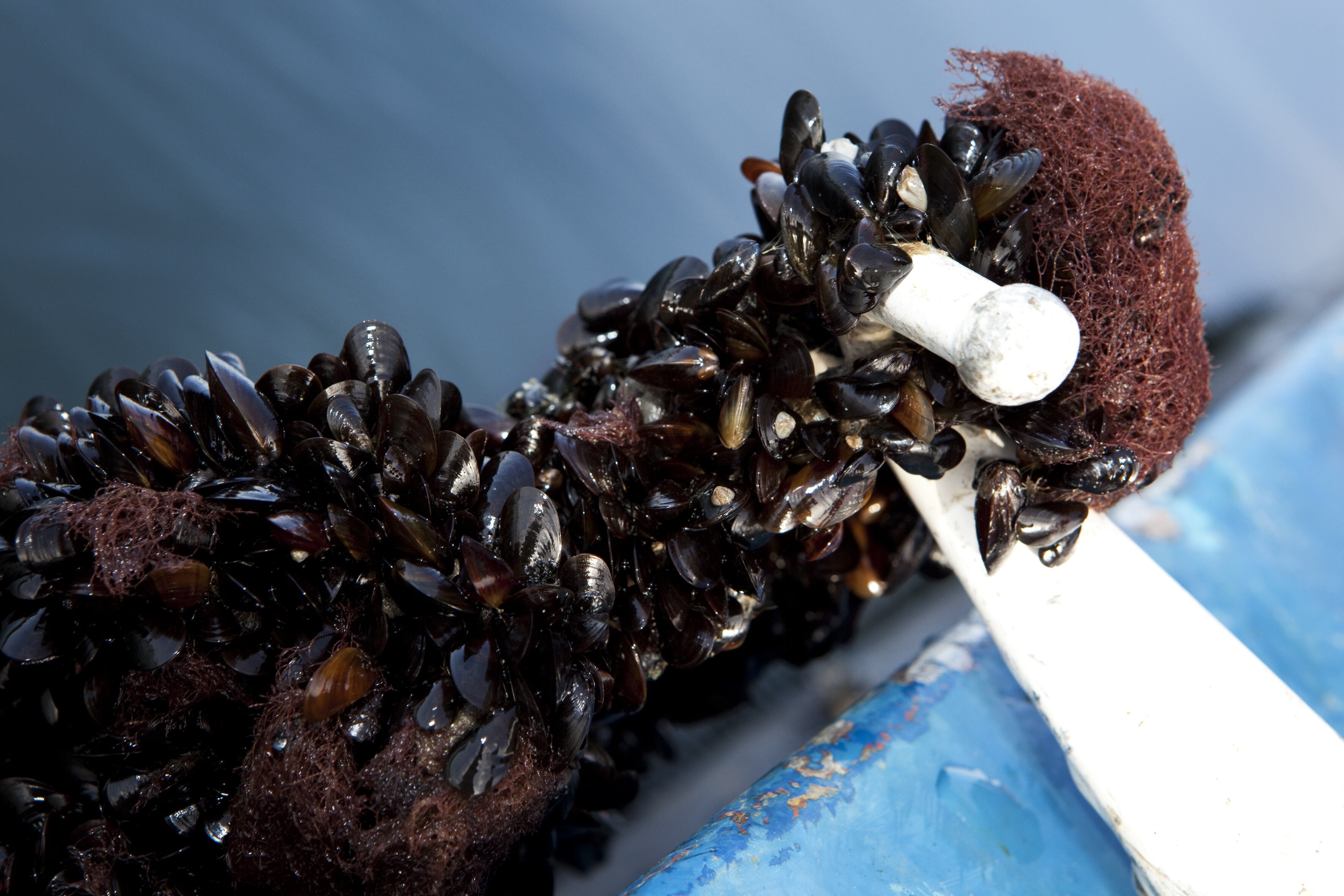The Interreg project Baltic Blue Growth demonstrated the environmental and economic benefits of blue mussel farming: it paved the way to make it common practice in the Baltic Sea region. The partnership consisted of mussel producers, public authorities, policy-makers and research institutions from Denmark, Estonia, Germany, Latvia, Poland and Sweden.
- 11 August 2021
‘We wanted to exert political pressure to get mussels accepted as a sea-based measure to counteract eutrophication of the Baltic Sea, and as a local, sustainable marine resource that can be used in feed products.’
Farming mussels as a sustainable blue business and environmental benefit.
Aquaculture has been playing a minor role in the Baltic Sea region. However, with the European Commission’s Blue Growth policy for sustainable growth in the marine and maritime sectors, it has received more attention. Mussels farmed in Baltic Sea waters showed some potential for the feed industry to replace e.g. imported fish and soybean meal. However, this business model has not been tested at a larger scale yet.
Apart from business opportunity, farming and harvesting blue mussels helps remove nutrients from the sea water as mussels filter large amounts of water for feeding. Therefore, blue mussel farming may be a stand-alone measure to counteract eutrophication, one of the most serious challenges for the Baltic Sea, but can also become a sustainable business model.
Taking authorities and businesses on board
Baltic Blue Growth enabled to proceed from pilot stage to real mussel farms by building awareness and capacity concerning blue growth and mussel farming among authorities, aquaculture companies, related associations, research organisations and other businesses.
The Interreg project Baltic Blue Growth used support from the European Union to increase cohesion by creating new knowledge about mussel farming the Baltic Sea and by letting mussel farmers share their experiences. It showed to municipalities in several countries that mussel farms offer a dual benefit to their regions: a business opportunity and a positive environmental effect. It also actively involved aquaculture companies interested in adding mussel farming to their business profiles.
Total investment and EU funding
The total investment for the project Baltic Blue Growth is EUR 4 651 205, with includes EUR 3 565 263 coming from the European Regional Development Fund. The project was co-funded by the Interreg Baltic Sea Region Programme 2014-2020 under the thematic priority “Efficient management of natural resources”.

